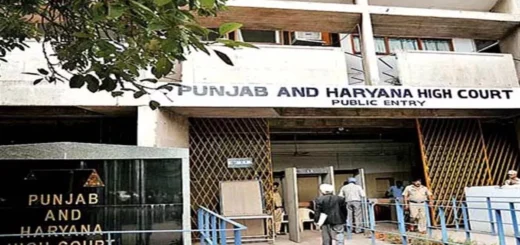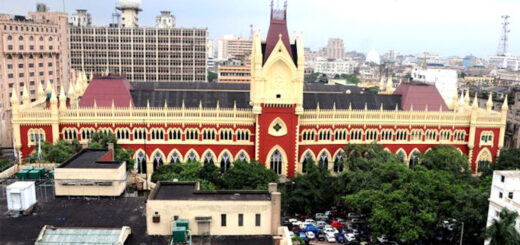“Top Court Rules That Executives Cannot Be Judges: Sets Nationwide Guidelines for Property Demolition.”

The Supreme Court issued a ruling today on Writ Petitions that challenged the use of bulldozers by authorities against the homes of individuals accused of crimes. Justices BR Gavai and KV Viswanathan stated that the executive branch cannot act as a judge. They emphasized that such arbitrary actions are unacceptable, noting that the executive cannot decide guilt or innocence, as this would overstep its authority. Justice Gavai highlighted that having a home is a fundamental dream for every family and questioned whether the executive can take away someone’s shelter simply because they are accused of a crime.
The Court examined whether properties belonging to accused or convicted individuals can be destroyed without following legal procedures. It stressed the importance of fairness in the criminal justice system and stated that the rights of the accused should not be prejudged. The justices also discussed the principle of separation of powers, asserting that the rule of law ensures that property cannot be taken away without proper justification. They declared that if the executive demolishes property arbitrarily based solely on accusations, it violates this principle. Public officials who act unlawfully must be held accountable. The Court established binding guidelines for state officials in these situations, affirming that even those accused have rights and protections. Any arbitrary actions against them must adhere to due process. If an official is found liable for such actions, there should be a system in place to address it, which could include compensation, as officials cannot escape consequences for misuse of power.
The Court emphasized that the right to shelter is a fundamental right under Articles 19 and 20. It stated, “Depriving innocent people of this right is completely unconstitutional. If a building is chosen for demolition while others are not, it suggests bad intent, indicating that the action is not about removing an illegal structure but punishing someone before a court acts.” The Bench added that these guidelines do not apply if there is unauthorized construction on public land or if there is a court-issued demolition order.
The Court instructed that no demolition should occur without a prior notice, which must be given according to local municipal laws or within 15 days of service, whichever is longer. This notice must be sent to the owner by registered mail and posted on the building. It should detail the unauthorized construction, specific violations, and reasons for demolition.
Furthermore, the Court mandated that the demolition process be video recorded and submitted to the municipal corporation, as well as published online. “Any violation of these orders will result in contempt proceedings. Officers must understand that if a demolition is found unlawful, they will be liable for restoring the demolished property at their own expense, in addition to paying damages,” the Court stated. The Registrar Judicial was instructed to send a copy of this judgment to all chief secretaries of States and Union Territories. It is important to note that on October 1, the Court had reserved its decision in this case after hearing from both sides and had extended the interim stay on demolitions without its approval.
On September 2, the Bench stated that authorities cannot demolish a house just because someone is accused or convicted without following proper procedures. The Court made it clear that it will not protect illegal constructions. It also mentioned plans to create guidelines for demolition activities across India. On April 21, 2022, the Supreme Court had extended the order to maintain the current situation regarding demolitions. The Court asked for notices in all cases and directed parties to confirm if they received notices before any demolitions took place. Dave argued that a specific group in society is being unfairly targeted by the demolition efforts, pointing out that Jahangirpuri was chosen even though there are 731 unauthorized colonies in Delhi. He referenced Section 343 of the Delhi Municipal Corporation Act, 1957, to support his claim that notice should have been given before demolishing any structures.
The NDMC stopped its demolition activities in Jahangirpuri after the Supreme Court instructed its Secretary-General to inform the NDMC Mayor and the Delhi Police Commissioner to halt the demolitions immediately. Senior Advocate Dushyant Dave raised the issue again, noting that the NDMC continued its demolition work, claiming it had not received a copy of the Court’s interim order.
The NDMC stated in its counter-affidavit to the Supreme Court that according to the Delhi Municipal Corporation Act of 1957, it has the authority to remove unauthorized structures on public land and temporary structures outside the boundaries of homes and shops without prior notice. They mentioned that bulldozers are necessary for this removal. The NDMC emphasized that when clearing roads or footpaths, the process is carried out uniformly, without regard to the religion or ownership of those occupying the public space unlawfully, thus denying any claims of targeting specific communities. In June 2022, the Court requested a response from the Uttar Pradesh Government while declining to halt the demolition efforts in Kanpur and Prayagraj. Jamiat, through a new affidavit, sought a writ of Mandamus from the Union and State Governments to prevent any permanent actions against individuals involved in criminal cases. They referenced protests and conflicts in Kanpur District, noting that several officials, including the Chief Minister of Uttar Pradesh, had publicly stated that the properties of those involved would be demolished using bulldozers.
Jamiat Ulama-i-Hind also approached the Supreme Court, asking for a directive to the Centre and certain states, including Madhya Pradesh and Uttar Pradesh, to refrain from “precipitative actions” like demolishing buildings during criminal proceedings. This plea gained importance due to recent actions in Madhya Pradesh, where authorities used bulldozers to demolish properties of individuals accused of rioting during Ram Navami celebrations. Jamiat Ulama-i-Hind argued in its petition that demolishing homes as a form of punishment in criminal cases is not recognized by criminal law.
Cause Title: In Re: Directions In The Matter Of Demolition Of Structures [W.P.(C) No. 295/2022]









